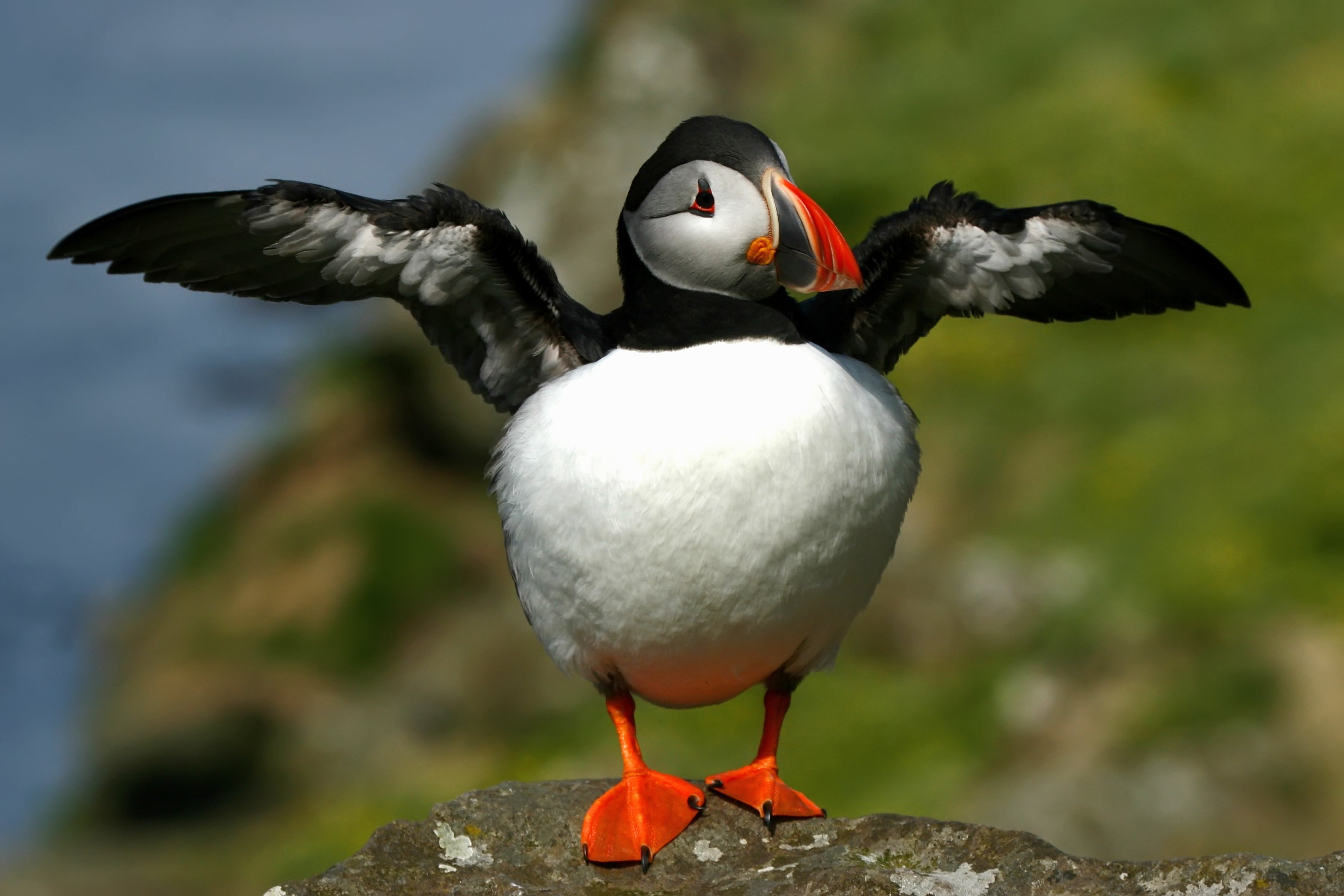Puffin breeding sites in Europe could be lost by end of century, experts warn
Researchers have put together a guide on how the birds can be protected from worsening conditions

Around 68 per cent of puffin breeding sites across Western Europe could be lost by end of the century due to the impacts of the climate crisis, experts say.
Researchers from the Zoological Society of London (ZSL) and Cambridge University say increased human activity near nesting sites and changes to the availability of food and extreme weather due to global heating is to blame.
Breeding spots most at risk include sites along the coast of Scotland, the west coast of Ireland, Iceland, Norway, and parts of northwest Russia.
As well as puffins, the researchers found that Arctic terns could suffer a loss of around 87 per cent of their breeding grounds, while razorbills could lose up to 80 per cent if no action is taken.
Henry Häkkinen, from ZSL, who led the study and produced guidelines on how the birds could be protected, said the Atlantic puffin was “one of Europe’s most treasured seabirds” and it would be “unthinkable” if it disappeared from European shores.
He added: “Seabirds are one of the most threatened groups of birds in the world, with many already seeing rapid global declines due to the impacts of human activity and climate change, including changes to food availability, extreme weather conditions and the loss of breeding grounds.
“These birds face double the challenges as they breed on land but rely on the sea for survival; by living across these two worlds, they are essential to both ecosystems and give us a glimpse into the health of wildlife in otherwise hard-to-monitor areas of the ocean – meaning their loss would impact countless other species and their conservation.”
Some 80 conservationist experts and policymakers across 15 European countries have provided tips on how to protect 47 species that breed along the Atlantic coastline including the UK’s coasts.
It includes advice on how puffins can successfully be encouraged to inhabit new breeding grounds by placing model birds at potential nesting sites and introducing man-made nesting platforms.
Co-author of the study, Dr Silviu Petrovan, from Cambridge University, said the study showed that bridging climate change research and conservation action has never been more important.
She added: “Climate change is happening at frightful pace, but our understanding and testing of practical responses for protecting biodiversity are lagging behind. This must change if we are to make substantive improvements - and seabirds are an urgent example.”

The team’s research collated surveys from more than 180 seabird conservationists across Western Europe.
Dr Petrovan said conservationists and practitioners needed to be “pragmatic” about protecting puffin nesting grounds to prevent their decline.
She said: “We need to be pragmatic and evidence-based - but also bold, and explore new approaches including, where appropriate, supporting colonisations of new habitat or even creating new habitats or breeding structures for seabirds.”






Join our commenting forum
Join thought-provoking conversations, follow other Independent readers and see their replies
0Comments